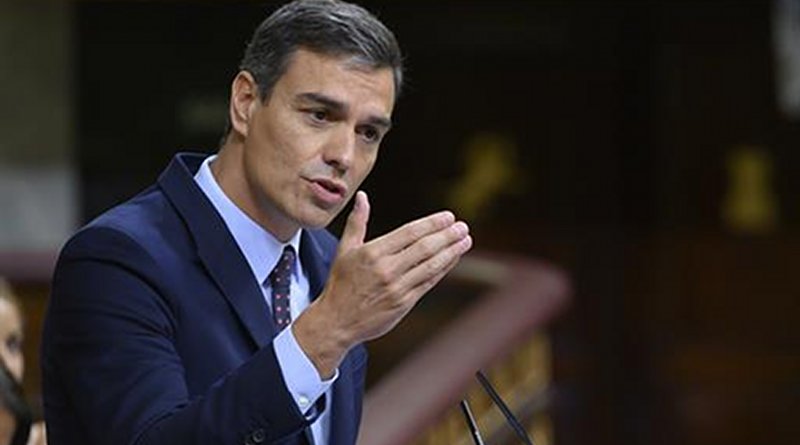Catalan Separatists Pave Way For Spain’s Future ‘Progressive’ Budget
By EurActiv
By Fernando Heller
(EurActiv) — The Spanish left-wing coalition government on Thursday (27 February) scored its first major political success, after the Parliament in Madrid approved the expenditure ceiling, a preliminary step for approving the new budget for the four-year legislature, EURACTIV’s partner EuroEFE reports.
With 168 votes in favour, 150 against and 19 abstentions, the government received a green light for establishing the main guidelines of Spain’s future budget. This financial instrument gives the executive the opportunity to spend an extra €6.000 million (a fiscal imbalance of 1.8% of Spain’s GDP) in 2020, compared with 2.5% in 2019.
The decision was made possible thanks to the abstention of the ERC (Esquerra Republicana de Catalunya, Republican Left of Catalonia), a Catalan separatist party.
The approval of the budget ceiling is the most tangible result of the meeting (on Monday 24) of Prime Minister Pedro Sánchez and key members of his cabinet with separatist Catalan president Quim Torra, to discuss the crisis between the central government and the regional government (Generalitat) dominated by separatist political forces that want to secede from the rest of Spain.
Dialogue within the framework of the Constitution
Torra and Catalan separatists parties wanted the meeting to be a tangible example of a new era of “political dialogue” between Madrid and Catalonia, in – as they describe it – a path towards the future “independence” of Catalonia.
However, the Spanish executive stressed that the “Mesa de Diálogo” (Dialogue Table) has no kind of “negotiating” mandate and will always remain within the legal limits of the Spanish Constitution (1978), while conservative forces headed by the Partido Popular (PP, Popular Party) fiercely criticized the move.
Sánchez reiterated on Wednesday the main “red lines”, and rejected the option of “self-determination” for Catalonia, EFE reported.
After three hours of discussions at the Moncloa Palace (where the Spanish executive has it seat), both parties stated in a press release that the meeting was positive, and agreed to continue their contacts to tackle the “political nature of the conflict”, and find a “political solution” to it.
A “State summit” Sánchez-Torra?
The leader of the conservative Partido Popular (PP), Pablo Casado, said the first meeting Sánchez-Torra had the “appearance of a State summit”, due to the presence of several ministers of Sánchez’s and Torra’s executives.
“We will never accept a policy of ‘faits accomplis’ that go beyond the democratic framework (the Spanish Constitution)”, Casado stressed, and blamed the government for accepting the “blackmailing” of Catalan separatists.
Meanwhile, the leader of Unidas Podemos and Minister of Social Rights, Pablo Iglesias, had to cancel his participation due to heavy tonsillitis, EFE reported. Iglesias is one of the most prominent advocates of establishing a permanent “dialogue” with Catalonia.
According to data from a poll published in July 2019 by the “Centros de Estudios de Opinión” (CEO) of the Generalitat (the “Catalan barometer”) around 44% of Catalans are in favor of independence, compared with 48.3% who are against it. This is the lowest figure of pro-independence supporters in the last two years, El Pais reported.
In a speech in the Spanish Congress on Monday morning, Sánchez defended the need for dialogue with Torra: “Hopefully it will bear fruit for the necessary reunion between Catalans”, he stressed.
But despite the good will of the Government, Sánchez admitted that the dialogue between Madrid and the Generalitat will be “difficult, long and complex”.
Meanwhile, Laura Borrás, spokeswoman for Junts per Catalunya in the Spanish Parliament, stressed that there will be no solution for the “political crisis” in Catalonia “without ballot boxes (elections)”, she said, referring to the need for a referendum to decide on Catalonia’s self-determination, one of the key demands by separatist forces.
According to an online poll by Catalan daily La Vanguardia published on Monday, almost 85% of readers, think the “Mesa de Diálogo” won’t produce concrete results.

